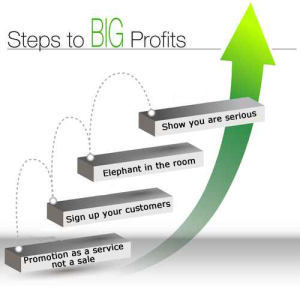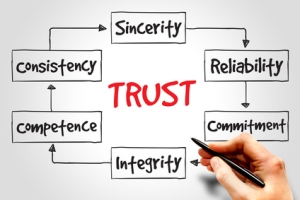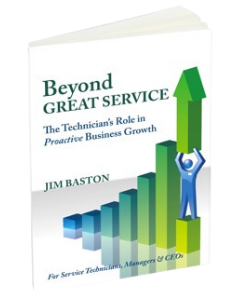
Like us, our customers are in competitive industries and are struggling for a business edge. They want more than just good customer service that makes them feel good. They want GREAT customer service that also helps them gain a competitive advantage. The tale of 2 auto mechanics below, is indicative of the choice we have as service providers. Which one would you prefer?
Our technicians play a major role here. Their value comes from going beyond doing great work. They must also understand the goals their customers have and the challenges that they face and make recommendations based on their knowledge and expertise that will help the customer succeed. Those companies that don’t engage their technicians in this way are at risk of losing business in the future.
Imagine two scenarios. Read more






 How we define the world impacts our perception of it. How we define our technicians’ role in promoting our services is no exception. This blog post is about the limiting reality of getting technicians to “sell” and the 4 reasons why this is the case.
How we define the world impacts our perception of it. How we define our technicians’ role in promoting our services is no exception. This blog post is about the limiting reality of getting technicians to “sell” and the 4 reasons why this is the case. Many service managers I speak to see value in encouraging technicians to be more proactive in business development. Although many of those are taking steps to implement a formal plan for their service teams, many fail to achieve the results that they seek. If you want your technicians to be more proactive in promoting your services, check out your perspective. It might be getting in the way.
Many service managers I speak to see value in encouraging technicians to be more proactive in business development. Although many of those are taking steps to implement a formal plan for their service teams, many fail to achieve the results that they seek. If you want your technicians to be more proactive in promoting your services, check out your perspective. It might be getting in the way. In my last blog I talked about the
In my last blog I talked about the 


